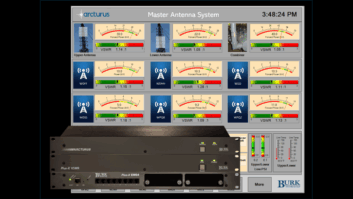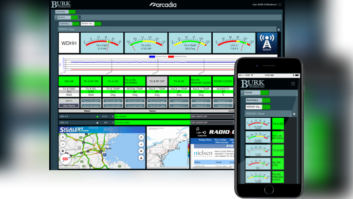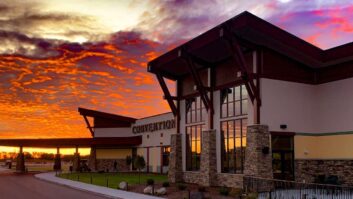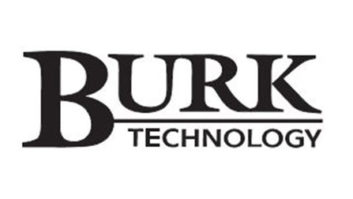DETROIT — Broadcast engineers have an exceptionally responsible job. We are charged with keeping our stations on the air at all times without exception. Few businesses place this kind of round-the-clock reliance upon so few personnel. Broadcasters rely on their engineers, and their engineers often rely on remote access.

I use remote access daily for tasks as diverse as checking email, troubleshooting an errant studio computer, helping out a baffled operator and keeping tabs on important back-office systems. Like most engineers, I’m always in possession my smartphone where I get email, text messages and, if the situation warrants, phone calls — all from automated systems designed to keep me informed and on top of whatever situation may arise.
OCCUPATION
There was a time when engineers occupied transmitter sites continuously; some literally living in an apartment or bunk in the same building as the transmitters. They were there to perform maintenance, make adjustments and monitor the numerous meters and indicators.
Most importantly, though, they were there to respond to critical conditions as they occurred, ensuring that stations ran within FCC prescribed tolerances and to guarantee maximum uptime for their owners.
Now technology rides herd on technology, permitting the broadcast engineer an opportunity to live a more normal life.
Site control is simply the ability to monitor conditions at a remote location, report anything that goes out-of-tolerance, and allow user interaction for troubleshooting, selection of alternate operational modes, and hopefully for correction of critical issues. Site control is what Burk Technology is all about, and Burk has been at the forefront of broadcast site control technology for almost 30 years.
Today, a smart majority of broadcasters use Burk products; some have several generations of it installed and still operable. The latest generation, ARC Plus, is their flagship product, with a modular architecture and plenty of connectivity options. Several flavors of ARC Plus serve a broad spectrum of broadcasters’ needs. With it, connections to a site or multiple sites can be made via PC, another ARC Plus, or, perhaps most importantly, anywhere your smartphone or tablet has data service.
Smartphones and tablets are well supported by Burk’s ARC Plus system in a smart and uncomplicated way. A user simply navigates to the unit’s Web page by placing /mobile/ at the end of the URL. This instructs ARC Plus to format its HTML output for a mobile device and in so doing, minimize bandwidth and screen requirements.
I use the ARC Plus mobile access capability on an Apple iPhone 5 and an Apple iPad mini with 4G LTE data service. By creating shortcut tiles on the iOS home screen I can easily access any of my sites in just seconds. Browser favorites are also set up for quick access should the need arise.
The UI is simple but allows the user to view status, metering, events and alarms. It is possible to issue commands, clear alarms or even to run any macros you may have stored in the unit. Password protection is supported, but as I found out, Safari mobile has a “Private” mode that, when engaged, will prevent you from successfully logging in.
Initially I had hoped that Burk would develop an iPhone app — sort of an iOS version of AutoPilot. But that that would probably would have meant supporting Android, and every other permutation of smart device that comes down the pike. Realistically, leveraging the more or less universal HTML browser language gifts Burk with a nearly perpetually compatible UI and relieves ARC Plus’ owner from continually having to patch and update the system or app just to support Jonny’s latest muse.
So, what’s the mobile UI like? It’s clean, fast and easy to navigate. One might call it “dead simple.” It clearly shows metering, status and commands on the first page with a menu to allow navigation to alarms, events and macros. All you need is right there; no nonsense.
Burk will no doubt continue to lead the way in remote site control and mobile access will continue to remain a priority. I appreciate having ARC Plus in my pocket and can confidently say that it will likely save my bacon again soon, as it has on several other occasions to date.
For information, contact Matt Leland at Burk Technology in Massachusetts at (978) 486-0086 ext. 700 or visit www.burk.com.







